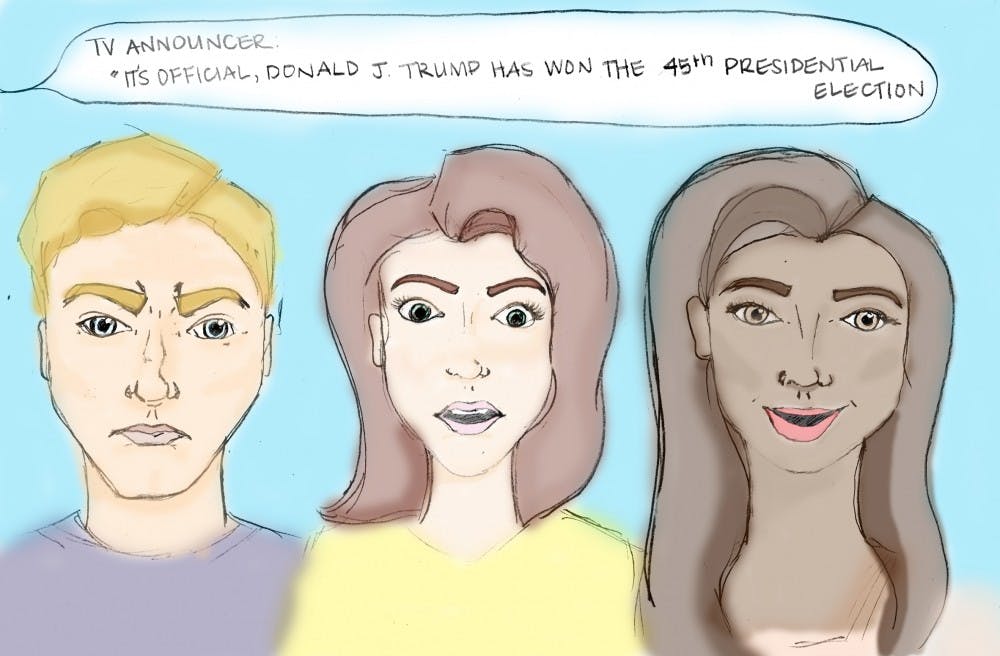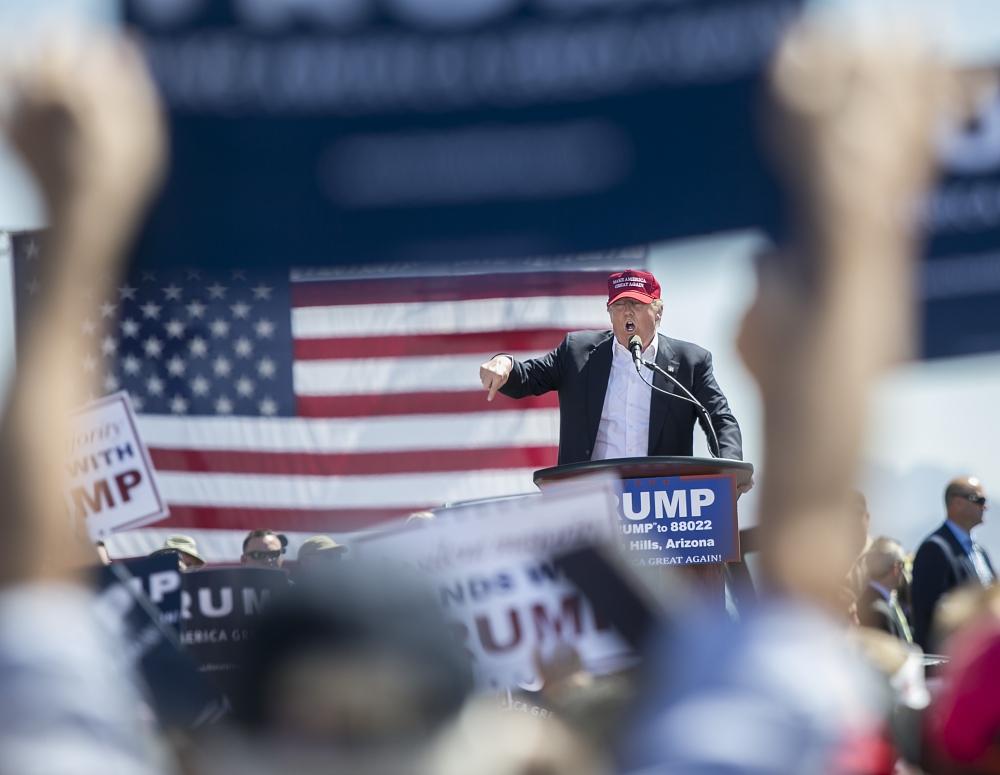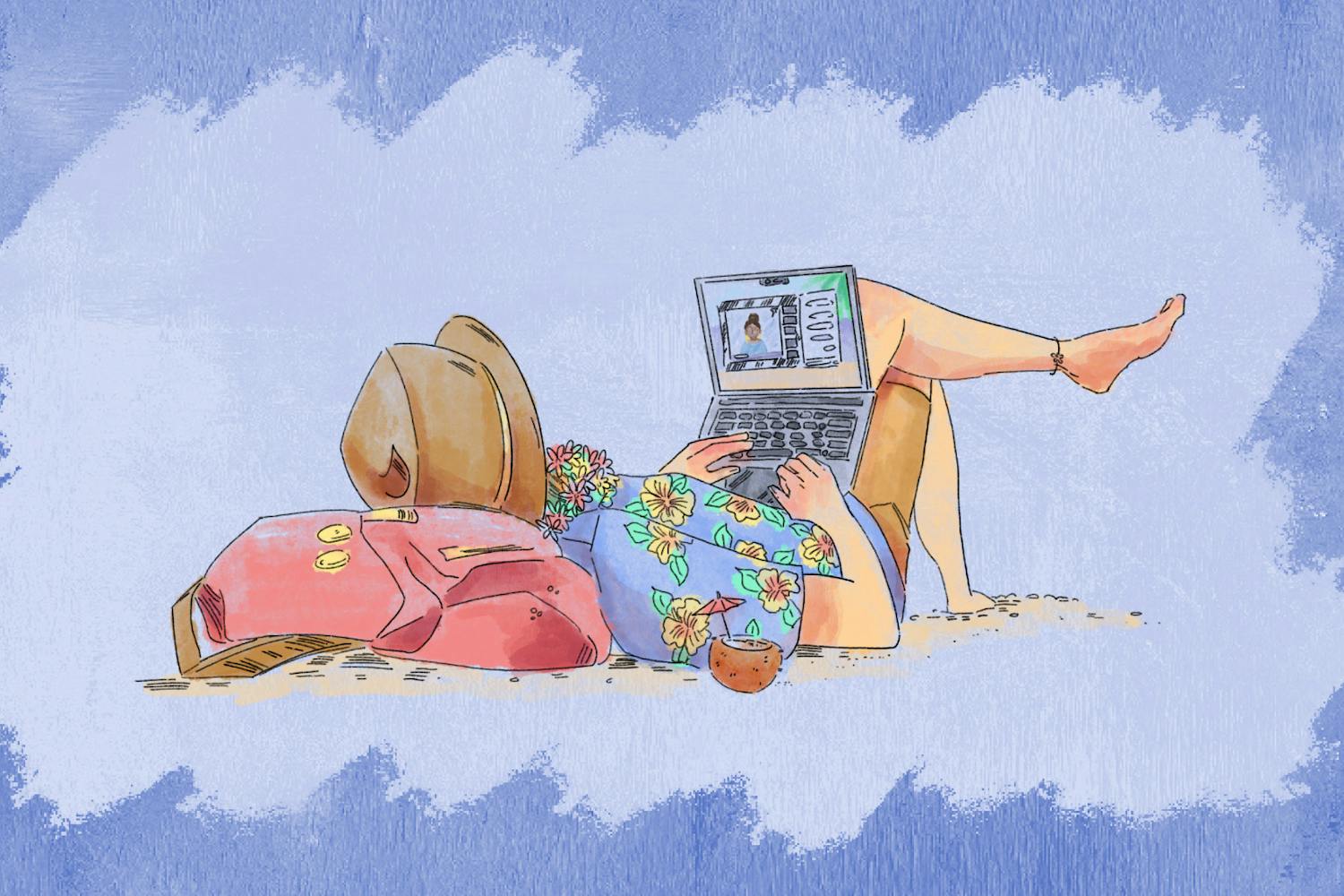A tall old woman stood at the front of my classroom in a frumpy, ankle-length dress and crooked, fragile-looking glasses as I quietly surveyed her from my chair several rows back.
It was like Christmas morning in my POLS 101 class — discussion about last night’s debate resounded through the bright lecture hall. The woman, my professor, radiated at the amount of voluntary, enthusiastic participation. I had never known people my age to care about politics like this.
Snow fell outside Colorado State University, where I spent my freshman year and found myself so friendless and drained from friend-making attempts that I distracted myself with schoolwork like the Pisces I am. I would always do an extra credit assignment if it meant avoiding an outing with the kids in my hall.
The chatter grew quiet and my professor spoke.
“The reason I got into politics is because I love being surprised. No matter what we find as political scientists, we are always surprised.” I listened to her words and heard them in my head all semester.
At 19-years-old, this election was the first I ever really paid attention to. I paid careful attention to it because it was so entertaining.
In my class we covered the stages of elections. Raising enough campaign funding during the “money primaries” ordinarily foreshadows some success, or at least that is what I copied down in my notebook. Then Jeb Bush, with a record-breaking $150 million in funds, dropped out.
I learned that following a national convention, public opinion should be way more optimistic, and post-convention “bounce” historically proves itself indicative of a victory. I thought the RNC was pretty dull with the exception of Ted Cruz using it is a platform to criticize his party’s official nominee.
Meanwhile, the DNC had celebrities, an iconic speech from Michelle Obama and assuring post-convention bounce, despite another email scandal at the time. On top of that, as a journalism student, Trump’s relationship with the media was so fascinating. Unlike any president before, Trump continually denounced the very news organizations we studied in class, holding them accountable rather than the other way around.
I felt so damn smart! For the first time in my life, I not only completely understood what was happening in the news, but also deeply cared about it. Everything I learned kept contradicting itself and that only heightened my interest.
But the words my professor spoke on the first day of class took form on November 8 when Donald Trump became president.
The 2016 election was remarkable from its start to unprecedented finish. Now, early in the administration, unclear mechanics of the election as it happened as well as future impacts are of interest to many, especially news organizations. On ASU’s campus, students may feel a variety of ways in the election’s aftermath. It was the first many were able to vote in, and remains a widespread topic of conversation among students and faculty alike.
Richard Herrera, associate director of the School of Politics and Global Studies at ASU, says supporters of the Clinton campaign on campus may be feeling, “Anxiety, about what [a Trump Presidency] means for certain populations of students. For example if they are an ethnic or racial minority, what that means for them.”
An on-campus club, the ASU Young Democrats, are prepared to make their beliefs heard during the Trump presidency.
Zak Ghali, President of the ASU Young Democrats added, “If the Trump administration does act on some of the things they say they would, we’re going to need to fight for some of our D.A.C.A. (Deferred Action for Childhood Arrivals) students here at ASU.”
But for Trump supporters on campus, Herrera says they may be experiencing a sense of confidence that Trump will help the economy, which will help college graduates find jobs. Supporters may also express doubt that he'll actually do the more controversial things he's pledged to do.
Kevin Calabrese, president of ASU College Republicans, says members of his club worked hard on the campaign and are excited to see it pay off. Calabrese also feels optimistic about the opportunity for the Republican Party to instill change and gain support.
“With the Republican Party controlling the House, Senate and Presidency, it will give them a chance to be fully accountable for everything they do,” Calabrese says. “I think it’s a great opportunity to convince millennials, who may be more skeptical toward the Republican Party, to discover that the Republican Party does stand for prosperity, jobs and growth.”
As far as what surprised them most about the election, both Khali and Calabrese agreed: the results.
“We really thought it was going to be a landslide across the board,” Khali says about a Clinton victory.
Calabrese feels the same.
“It really looked like it wasn’t going to be in the favor of the Republican Party on Election Day,” Calabrese says. “Especially how different news outlets were putting out that Hillary Clinton had a 98% chance of winning.”
What surprised Herrera most occurred toward the end of the election, but was not merely the results.
“I think what surprised me were the scandals that took place,” Herrera says. “The whole audio of Trump making comments about women and so forth, just about any of candidate in just about any other campaign you can imagine — that would’ve been the end of the campaign. They could not survive that.”
As I mentioned previously, this election obviously caught my interest — so much so that I changed my minor to Political Science. For me, the moment that sparked my interest in politics was pretty much this whole entire election.For Herrera, The Voting Rights extension act took place when he was an undergrad, and his Political Science Department was actively involved. He is now the associate director at the School of Politics and Global Studies at ASU, and has been teaching there for 27 years.
When I spoke with Ghali, he was on his way to a graduate-level research course. He is a senior political science major and President of the ASU College Democrats. He took a government class when SB 1062, a law exempting individuals or businesses from following a state law if it "substantially burdened" their religious practices, passed through both houses, and felt inspired to participate in the veto movement.
So I guess my boring old professor somehow got me to absolutely love politics, and to this day I regret not telling her that because I know it would have made her really happy. I also wish I knew what made her get into politics because it seems to me all it takes is a sort event, or maybe election, to strike one’s interest in this stuff indefinitely.
Reach the reporter at Hailey.Mensik@asu.edu or follow @HaileyMensik on Twitter.
Like State Press Magazine on Facebook and follow @statepressmag on Twitter.






